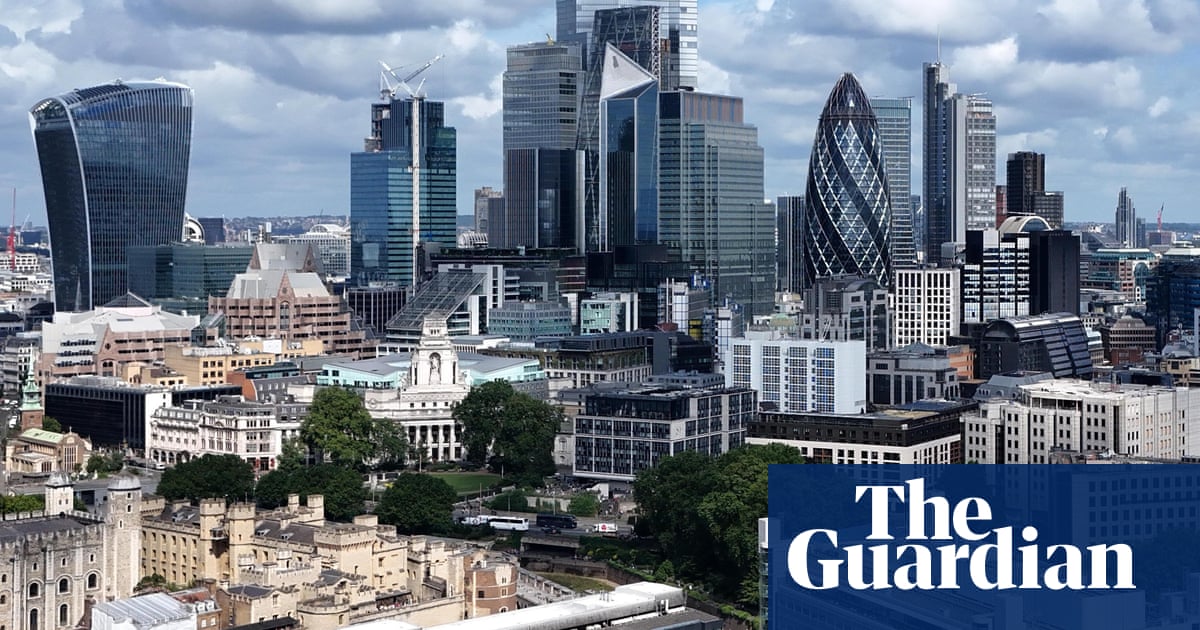The number of billionaires in the UK has grown sharply – from 15 in 1990 to 165 in 2024 – at the same time as inequality in the UK’s overall wealth distribution has dramatically increased, analysis has found.
Timed to coincide with the Sunday Times’ rich list, the Equality Trust’sinvestigationalso found that billionaires have become “ludicrously” more wealthy, with their average wealth skyrocketing by more than 1,000% over the same period.
The top 50 richest families in the UK now hold more wealth than the poorest half of the population, comprising more than 34 million people. In 2024, the two richest UK billionaires held more wealth between them than all the billionaires in the 1990 rich list combined.
“Our analysis also shows the vampiric nature of extreme wealth, which is completely incompatible with the health and wellbeing of the nation,” said Priya Sahni-Nicholas, co-executive director of the Equality Trust. “Property, inheritance and finance account for over half of total billionaire current wealth: sources of wealth creation that are responsible for large-scale planetary and community destruction.
“The obscene growth in wealth of the UK’s richest is due to them profiting from society’s struggles while causing them additional harm and undermining successive governments’ goals of decarbonisation, spreading more wealth and growth out of London, ending the housing crisis, encouraging the growth of new – and frequently greener – industries, and encouraging stronger communities.
“The issue of extreme wealth really is existential; for our very survival we need to get serious about changing economic structures and design policies that end the existence of billionaires.”
Julia Davies, a member of Patriotic Millionaires UK, said that inclusion in the rich list should be a mark of shame. “This process of hoovering up wealth into the hands of ever fewer people is directly harming everyone. These people don’t deserve that level of wealth, it just so happens that some people gather an incredible amount of money around them while other people don’t, despite educating our kids and keeping our health service going.”
Davies said it was wrong to call the wealthy “job creators”. “I call them job eradicators because when you consolidate businesses into the hands of ever fewer people, you’re wiping out smaller and medium-sized businesses because they cannot compete with chains that undercut them.
“These people also employ such effective tax-management measures that they’re paying far lower rates of tax to the local and national economy than working people or small to medium-sized businesses.”
It did not have to be this way, she said. “You can use wealth to accumulate ever more wealth or you can use it to address many of the multiple issues that society is struggling with.
“It’s not intrinsic in being wealthy to want to continue to attract ever more wealth to yourself at the expense of society,” she said. “That’s not something that just happens to you when you become wealthy and we shouldn’t just accept it. It’s a choice.”
Fernanda Balata, a political economist at the New Economics Foundation and author ofExploring An Extreme Wealth Line, said that the UK had gone down a route of economic instability while the government had put the super-wealthy above everyone else. That, she said, “is not by accident.”
“There are so many connections now between the wealthy and the powerful, that it spills over into public institutions,” she said. “This means politicians today are having to rely increasingly on lies and flawed narratives to keep the system going.”
But Balata said there was hope. “There is broad consensus now that extreme levels of wealth inequalities are causing multiple harms to society.”
Balata said that politicians need to start looking at extreme wealth as an issue in itself. “We need an Extreme Wealth Line: the point at which excessive wealth causes unjustifiable harm,” she said.
Dr Benjamin Tippet, a lecturer in economics and wealth inequality at King’s College London, has modelled what a 2% tax on those on the rich list would have raised, if the policy had been in place since the mid-90s.
“I discovered that a 2% wealth tax on the tax residents on the rich list would have raised about the equivalent of £6bn per year: £155bn,” he said. “Invested, that would have been worth about £325bn in today’s money – well over £11,000 per household. That’s a significant national wealth fund. And even with this tax, the share of wealth of people on the rich list – the top 0.001% – would still have increased.”
